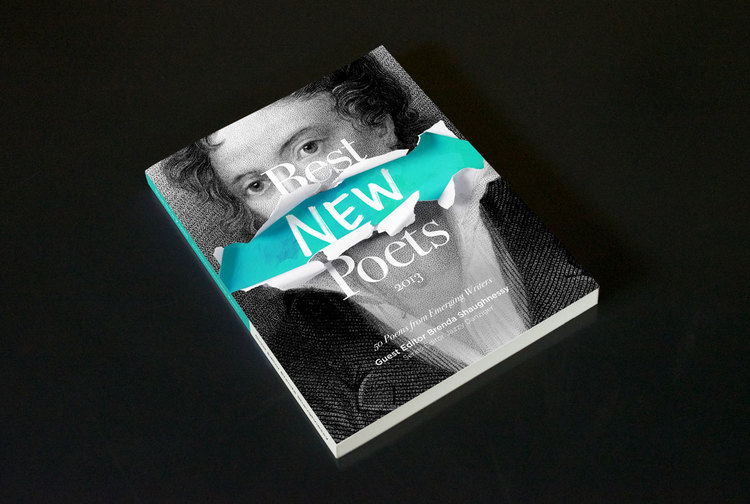Nina Sharma is a writer from Edison, New Jersey. Her work has been featured in Certain Circuits Magazine, The Feminist Wire, Reverie: Midwest African American Literature, and Ginosko Literary Journal. She recently was awarded a fellowship from the Vermont Studio Center and nominated for a Pushcart Prize for her nonfiction. With Quincy Scott Jones, she co-created the Noreaster Exchange: a multicultural, multi-city reading series. She is currently attending Columbia University's MFA in writing program and working on her first book.
Cathy Linh Che: I know that you are now attending Columbia for your MFA program. How has your work changed during the course of the MFA? How has it remained the same?
Nina Sharma: I’m actually starting next week! This world isn’t entirely new to me though. I have a master’s in American Studies. I think I began to find my footing as a writer during the course of that program. It was a little bit of a discovery period for me—honing in on the issues and themes I care most about and how I’d like to attend to them. I took chances. I slipped in creative writing when I could, brought pop culture into conversations otherwise reserved for canonical works, and vice versa. I felt a newfound charge in my writing as I did. While I was working along these lines prior to my program, shifting into that new space, with a new audience, made me realize that the best writing comes out of a sense of risk. I kind of take that with me whether I am working in a program or outside of it.
CLC: Could you tell me a little about your life pre-MFA? What made you decide to apply and attend one?
NS: For the most part, up until like a year or so ago actually, I was more of what I call a secret writer. I always wanted a professional writing life but I wasn’t sure it would happen. Most of my family members are in healthcare in some way. Only three out of the fourteen of us cousins pursued something else. Even though I didn’t take a science track and wrote throughout my life, I always struggled to see this as something very real and possible. I owe a huge debt to Asian American Writers’ Workshop, where I worked for a few years. Meeting other writers of similar backgrounds and who engaged with similar themes, who pushed their work across bounds I could not even fathom yet, connecting with like-minded organizations such as Cave Canem and Kundiman along the way, I felt excited and hopeful in a way I hadn’t before. Being part of a writing community full time for two years is a real gift, to not have to fight for that time or qualify it in any way.
CLC: Kundiman has an ongoing Kavad project this year called Writing Race and Belonging: Would you mind spending some time discussing your relationship to writing, race, and belonging? Broad topic, I know, but we're interested in any gut reactions, memories, thoughts, or impressions you have when you think about those three ideas.
NS: At the risk of sounding Mad Libby, I would say that writing, in particular reflecting on race and identity, gives me a sense of belonging more than anything else. I am a shy person and I think I have written my way out of the silences in my life. I am thinking of the times when my loved ones do not consider the traumas they have suffered to be worth acknowledging and also times when I fail to acknowledge my own. I am, like many first generation South Asian Americans, an inheritor of silences, we absorb them and later, learn to read between them, just as we learn to negotiate the two worlds we exist in— the world of our home and family and the one outside of it, in which the former is often rendered invisible. It is that threshold between the two worlds that is most like home to me, the closest I’ve felt to belonging. That is where I write from.
CLC: What are you currently working on?
NS: I am working on a series of essays reflecting on my relationship with my husband, Quincy Scott Jones, meditating on our experiences as an interracial couple— he being African American and I, South Asian. I reflect upon moments in our life and also engage with broader histories that speak our experiences; in particular surprising, idiosyncratic connections I found as I looked into things further. It’s been exciting, discovering so much even as I write our own story.
CLC: Do you have any poetry (or art or music) recommendations?
NS: The writings of Theresa Hak Kyung Cha, Maxine Hong Kingston, and James Baldwin are particularly inspiring to me. They are and always will be, to take a line from Kingston's Woman Warrior, my swordsmen and swordswomen. Speaking more contemporarily, the work of Minter Krotzer, Kamilah Aisha Moon, Bushra Rehman, whose wonderful debut novel Corona came out earlier this year, Thaddeus Rutkowski, Hal Sirowitz, and Mecca Jamilah Sullivan are always close by me and Quincy’s The T-Bone Series is right at the heart.
Nina will be reading at Kundiman & Verlaine this Sunday, September 8th with Jenny Xie and Sho Sugita. Facebook event here and more event info here.








